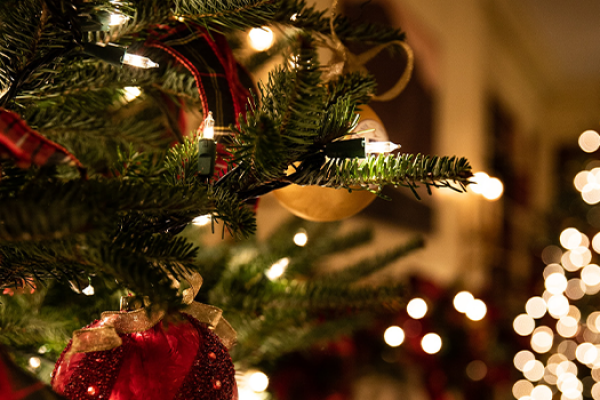A Worldwide Celebration

A Worldwide Celebration
TeachBeyond has members serving in educational ministries in over 70 different countries. And while every country has its own unique languages, cultures, and histories, we all worship the same God. With Christmas only a few weeks away, let’s look at how the birth of Christ is celebrated by TeachBeyond members all over the world.
In South Africa, TeachBeyond members started an organization that helps bring gifts and good will to poverty-stricken members of their community. The organization gives Christmas gifts to underprivileged homes and in conjunction with local orphanages. This year, their hope is to share a Christmas meal with the orphanage, as well.
In Spain, one member tells me that Christmas is celebrated more on the commercial level, though most people celebrate the 24th and 25th with their families. The bigger celebration is on January 6th for Three Kings Day. Even Spaniards who don't claim Catholicism celebrate this day, especially for children, with parades and visits from people dressed up as the 3 kings bringing gifts.
In Brazil, Christmas trees, nativity scenes, and garlands all occupy spaces in houses and streets. Chruches flash with colored and blinking lights. The celebration of the birth of Jesus is something special and many families retell biblical stories on that date to their children. When we celebrate Christmas dinner, right after we exchange gifts, still on the night of the 24th. As December is the height of summer, the Christmas atmosphere is very different too! Children anxiously await the moment when gifts are exchanged and, in some families, the "secret Santa" is something very traditional. Sharing meals goes beyond the 24th, and there are many families who gather for lunch on December 25th. The dishes? What's left over from the night before, of course! Typical Christmas food includes Panettone, rice with raisins, wine, Chester and for dessert each family has its own traditional dishes.
Communism reigned in Albania from the end of WWII to 1991. The strict regime enforced atheism and silenced Christmas. As such, the Christmas traditions were placed on New Year’s. Not a Christmas Tree, but a New Year Tree. Not Santa Claus, but Grandpa New Year. Gifts were given and a big meal enjoyed, but not on Christmas Eve, but on New Year’s Eve. It is only within the past 10 years that those traditions have now slowly extended to capture Christmas as well, but not with any thought of the birth of Christ. Of course, this is different in Christian homes where there is an attempt to "reclaim" Christmas. One way of showing the importance of one holiday over another is actually when the Bakllava is made and served. Christian homes are now starting to serve this very special, traditional dessert on December 25th, while those who do not follow Christ still keep this for New Years.
In the Philippines, Christmas is a great celebration! Decorations and Christmas music start appearing on September first and the cheers last through Epiphany. Moving light shows and displays go up everywhere: on homes, lamp posts, traffic signs, in malls, and public transportation. The most common decoration is the Parol, which means lantern or light. It symbolizes the star of Behtlehem, and are traditionally made from bamboo and see-through paper lit with a candle. While there are many parties and celebrations, December 24th, “Noche Buena,” is usually the largest of them all.
No matter where you are, TeachBeyond wishes you a Merry Christmas. May we all celebrate the Glory of Jesus’ birth and use this holiday to bring joy to the world.
